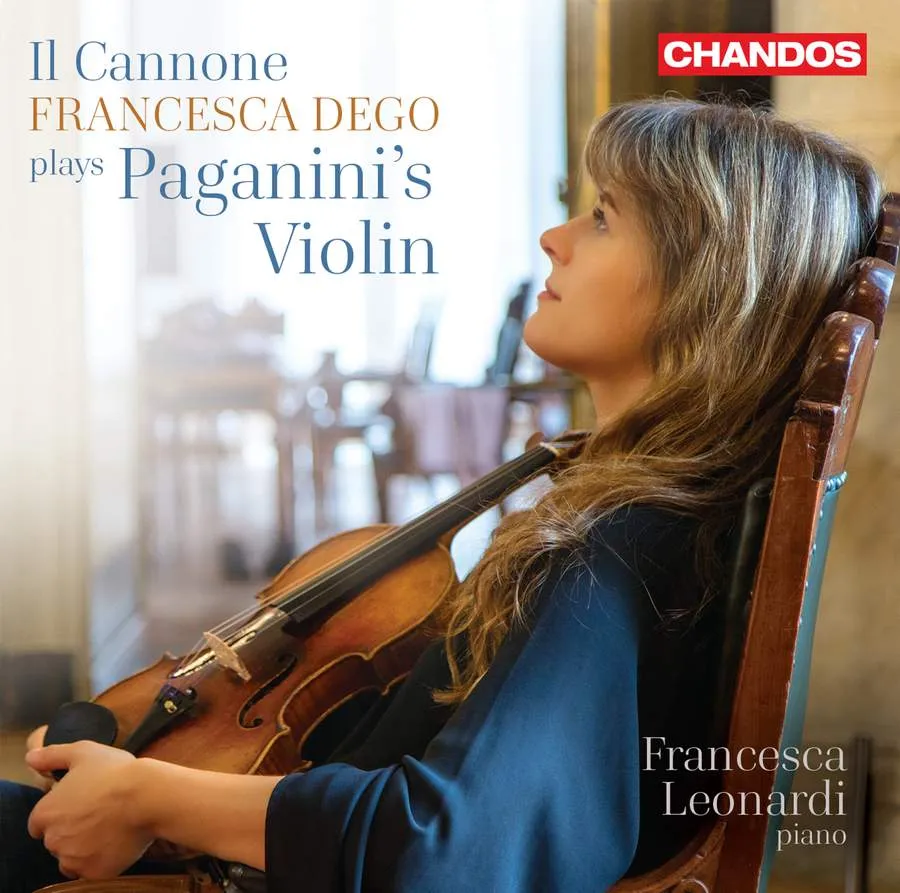
Il Cannone – Francesca Dego plays Paganini’s violin Kreisler: Recitative and Scherzo Caprice, Op. 6; Paganini: Cantabile for violin and piano, Op. 17; Rondo La Campanella (arr. Kreisler); Szymanowski: Paganini Caprices, Op. 40; plus works by Boccadoro, J Corigliano, Rossini and Schnittke Francesca Dego (violin), Francesca Leonardi (piano) Chandos CHAN 20223 64:03 mins
Il Cannone, the legendary Guarneri violin on which Paganini performed some 200 years ago is now a museum piece, if a living one, kept in the town hall in Genoa, the city to which it was bequeathed by the virtuoso, under the watchful eyes of six security guards. Every now and then, it is gingerly removed from its glass casing – a finely choreographed manoeuvre of white gloves and hushed voices, one imagines – and run through its considerable paces, as here in 2019, by Italian-American violinist Francesca Dego.
Dego eschews an all-Paginini repertoire in this refreshing programme, instead choosing works inspired by the virtuoso’s own, with the idea that the violin, briefly freed from its case, will play new music as it would have done in Paganini’s lifetime. Along with long-time recital partner Francesca Leonardi, Dego plays arrangements of Paganini by Kreisler, works inspired by Paganini by Rossini and Szymanowski, alongside new commissions from Carlo Boccadoro.
If Dego exploits the instrument’s deep warm sound in the recitative of Kreisler’s own Recitativo und Scherzo-Caprice, the brilliance in the higher register is heard in the Scherzo. Dego has an expressive touch, skittering over the strings, yet finding plenty of attack in Szymanowski’s Trois Caprices. Corigliano’s Red Violin Caprices are at times spellbinding, descending into a guttural, harried chase. Leonardi accompanies sensitively throughout, not least in the judicious tinkling of the Boccadoro arrangement of Paganini’s Cantabile. His new work, Come d’Autonno, premiered here, is bleak, atmospheric and unsettling, Il Cannone reverberating expressively in Dego’s hands, as it once did for Paganini.
Sarah Urwin Jones